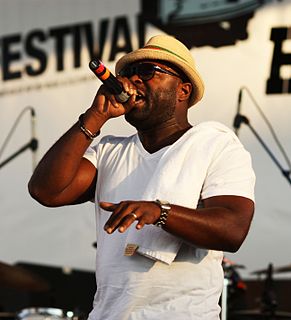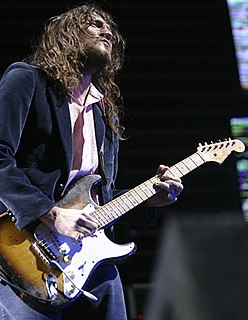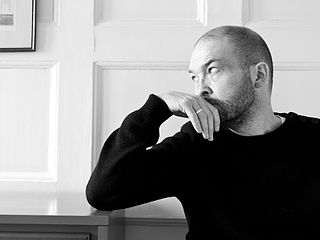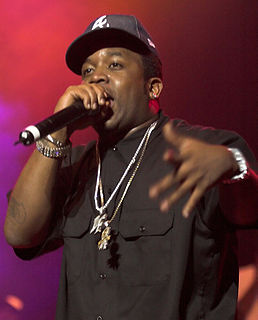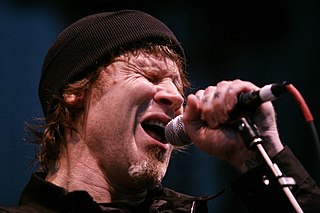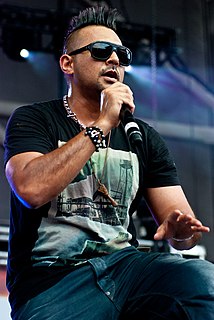A Quote by Black Thought
For some music, lyrically, the best move is to keep it simple in what it is that you are saying, and just kind of come across in your rhythm and the way that you lock in on the music.
Related Quotes
Everybody's looking for some kind of authenticity in music. Or some kind of truism, you know, "This is true!" And the thing about gospel music is, these people are singing about their faith. So it always comes across with, as authentic, you know? Gospel choirs put across this amazing sound but they're singing from the heart because they truly believe it. And I kind of have that faith, but I just have that faith in music.
In an odd way I thought I was lowering the bar for myself, in saying, well, I'll make a pop album. But in a way it's kind of harder to make pop music. It's like the more abstract you get with music, you get into that emperor's new clothes thing, where you can go anywhere, and just claim that your audience may not be prepared to go with you. But with pop music, I think everybody understands the form, everybody knows what it's meant to do. So I would say it's harder to write that kind of music.
I think, when all bands start, when you're on your first album you have the benefit of hoovering up people who genuinely come across the music and really like it, but also those sort of 'floating voters' who just like pop music when they're young. And I think that when you get to your fourth album, those floating voters have dissipated and you're left with a core audience, and at that point you've really got to get your act together and move on to something else to keep afloat, or you'll just shrink with your core audience.
I'm kind of lucky in the fact that I can take something that's in my head and write it down, or I can listen to a piece of music that somebody else has written and try to tap into what the music's saying and just kind of follow that, you know. I mean, nine times out of 10, I'm just kind of following where the music takes me.
I can certainly see a band like Nirvana, like when they started having to play to the kind of guys that beat them up in high school - that was probably shocking. But you make music to move people and you don't get to pick who you move. You just don't. It's exclusionary and elitist and I just never felt that way about music, of all things. The great unifier.
I'm obsessed - not just interested, obsessed - with folk music, street music, the parallels between a country's street music and its so-called classical and intellectual music, the way certain scales have travelled right across the globe. All this ethnological and musical interaction fascinates me. Have you heard any trance music? That's the thing.
